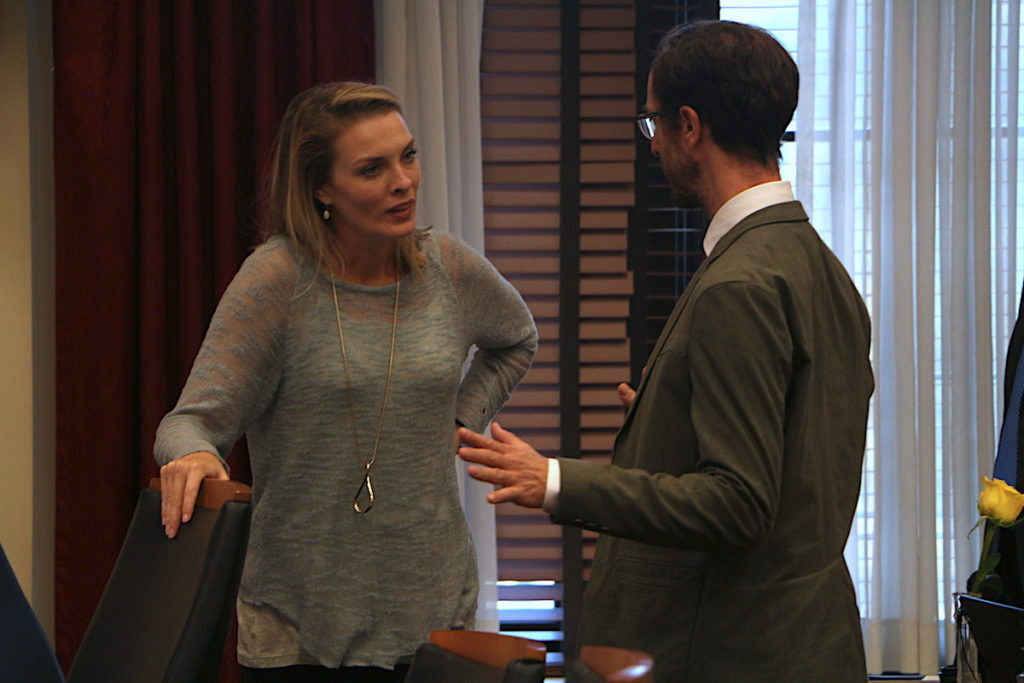
Nashville has $24.8 million of unallocated federal CARES Act money.
During Thursday’s meeting, councilmembers considered various resolutions to spend the money on education, arts and rent relief for the Nashville Farmer’s Market — all before the clock runs out and they’re forced to return the money to the federal government.
Councilmember Courtney Johnston, who is on the Metro COVID-19 Financial Oversight committee, says the committee halted allocating the money because of the anti-tax referendum trial. The committee was also waiting to see if the federal government’s would send cities more money or extend the deadline.
“Rest assured, none of this money will be returned to the federal government and every penny will be put to good use for our community,” she says in a statement to WPLN News.
She says the one option to meet the deadline is to spend it on Metro’s response to the pandemic like vaccines, testing centers and personal protective equipment.
Concerns about MNPS
In the process, a couple councilmembers are raising concerns over how Metro Schools handled its CARES Act money.
Back in June, the district and the mayor announced plans to spend $24 million on laptops and hotspots. That was before the creation of the committee.
After the school district received $10 million from the state, Johnston says an equivalent amount money should have been returned to Metro.
“To me, the more prudent and financially responsible way to handle this is to say the $10 million comes back to the committee. And additional need could’ve been applied for,” Johnston says.
Instead, MNPS is asking that the money be reallocated for more laptops, hotspots and other school supplies for teachers and students.
Councilmember Colby Sledge raised concerns that district officials recently reported needing $34 million to ensure teachers also had the technology needed for class.
“What happens when the teachers’ technology doesn’t work?” he asked. “Doesn’t that mean no learning happens regardless if every student is sitting there at home with a shiny new laptop?”
He says some teachers have reported not having the proper technology since August.
Councilmember Tonya Hancock defended the district, saying all school systems faced new challenges as they switched to remote learning.
“And I would not chastise them for not having all of the information in the beginning,” she says. “I think they’re delivering the information as soon as they possibly can.”
Some councilmembers will meet with the district before council decides if they’ll allow MNPS to shift how it uses its funds.
Bordeaux Long Term Care Facility
On Nov. 17, the council will vote on a resolution that would spend $5 million of CARES money and $1.5 from the city’s general fund to continue operating the Bordeaux Long Term Care Facility, as well as performing repairs on the nursing home. The resolution asks the Metro Purchasing Agent to negotiate an emergency contract for the operation of the facility starting on Jan. 1.
In a memo, the city’s Director of Finance Kevin Crumbo put a damper on the resolution’s ability to be approved. He says the money would need to be spent by the end of December, not just allocated, and he wasn’t sure if the facility met the eligibility.
Also Thursday, a group of residents and workers from the facility delivered a petition to encourage council to save the center.
Arts nonprofits and Farmer’s Market
The Metro Council approved $2 million for nonprofit art organizations. The Metro Arts Commission will determine which organizations receive grants of up to $100,000.
A resolution to disperse $500,000 in CARES funds to help farmer’s market vendors with rent was delayed until council’s meeting on Nov. 17.
Correction: This story originally said Metro has a lower amount of remaining CARES Act funds. The city has $24.8 million unallocated, not $24.5 million. Additional details have been added via Councilwoman Courtney Johnston and a memo from the Metro finance director.

